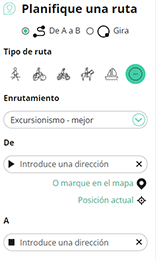Fuente: Willem Vandenameele
The present church was rebuilt after the 1117 earthquake that destroyed most of the city. Details of the earlier church on the site are not clear, although a church dedicated to Saint Mary is known from the 9th century. This was not the original cathedral, which was dedicated to Saint Peter and stood next to the Episcopal Palace; it was destroyed by the Florentines during a siege in 1472, after which the bishop's seat was transferred to the current cathedral.
In 1580, Bishop Guido Serguidi, with the approval of Ferdinando I de' Medici, Grand Duke of Tuscany, commissioned the decoration of the intricate coffered ceiling of the nave and the crossings, designed by Francesco Capriani, carved by Jacopo Pavolini and gilded by Fulvo della Tuccia . The ceiling has carved reliefs of Saints Ugo, Giusto, Pope Linus, Clemente, Attinea, and Greciniana, surrounding a central symbol of the Holy Spirit.
The elongated nave and the interior space form a Latin cross. The nave spans 22 columns decorated with stucco that mimics pink granite. Much of the interior was restored in 1842-1843. The plastered capitals were completed in the 16th century by Giovanni Paolo Rossetti and Leonardo Ricciarelli. In the 19th century the walls of the interior were painted in stripes suggesting typical Tuscan decorative church architecture . On the floor are tiles of alternating dark and white marble.
The pulpit has three reliefs of the Last Supper , the Annunciation and the Sacrifice of Isaac , and the lions at the foot of the columns are undoubtedly 12th-century works of the Guglielmo school, perhaps carved by the Pisan sculptor Bonamico.
To the left of the entrance is the tomb of Francesco Gaetano Incontri. Below the monument are eight marble intarsia panels, originally part of a 12th-century Tuscan balustrade.
The main altar, dating mainly from the 19th century, has a marble ciborium with flanking angels (1471) by Mino da Fiesole. The choir stalls were completed in the 14th century. In the ceiling of the crossing are images of God the Father and Stories of the Life of the Virgin (1585) above the choir by Niccolò Circignani.
The cathedral contains the funerary monument of the humanist bishop of Cavaillon, Mario Maffei, who died in Volterra in 1537. The figure of the prelate dressed in his finery in a sleeping position on the sarcophagus was executed by Giovanni Angelo Montorsoli, one of Michelangelo's assistants.
There are many chapels in the cathedral.
The rectory's stalls are the work of Francesco del Tonghio and Andreoccio di Bartolomeo, while the fine 15th-century intarsia on the bishop's throne and the chaplain's pews are the work of unknown Tuscan masters
Fuente: Willem Vandenameele
![]() | | Pública | Alemán • Español • Francés • Italiano • Neerlandés
| | Pública | Alemán • Español • Francés • Italiano • Neerlandés

Selecciona una de las actividades más populares a continuación o afina tu búsqueda
Descubre las rutas más bonitas y populares de la zona, cuidadosamente agrupadas y seleccionadas.
Fuente: Willem Vandenameele
Selecciona una de las categorías más populares a continuación o inspírate en nuestras selecciones
Descubre los lugares de interés más bonitos y populares de la zona, cuidadosamente agrupados y selecciondos.
Fuente: Willem Vandenameele
Con RouteYou, es fácil crear tus propios mapas personalizados. Simplemente traza tu ruta, agrega puntos de ruta o nodos, agrega lugares de interés, lugares para comer y beber, y luego compártelo fácilmente con tu familia y amigos.
Planificador de rutas

<iframe src="https://plugin.routeyou.com/poiviewer/free/?language=es&params.poi.id=8278088&params.language=en" width="100%" height="600" frameborder="0" allowfullscreen></iframe>
© 2006-2026 RouteYou - www.routeyou.com